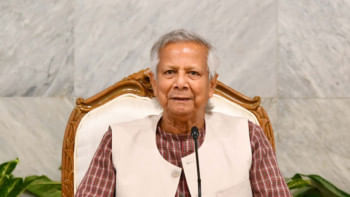US keeps the pressure on
The United States was actively engaged with the highest levels of the Bangladesh government, exporters and buyers on workers safety related issues in the readymade garment industry, said US State Department spokesperson Jen Psaki.
Responding to a question on a hearing at Senate's Foreign Relations Committee on Thursday, the spokesperson at the daily press briefing in Washington, DC on Friday said Undersecretary Wendy Sherman had extensive discussions in Bangladesh over factory and workers' safety issues.
He said US Ambassador to Dhaka Dan Mozena regularly engaged with the Bangladeshi authorities and the Bangladesh Garment Manufacturers and Exporters Association, and had pressed them on the issues.
"So it is something we are in regular contact with, we are discussing and thinking about in the building, and we will continue to focus on," Psaki said.
During Thursday's hearing, US senators called on the White House and major American retailers to bring collaborative sanctions against Bangladeshi garment.
"The administration will announce a decision on the next steps in the GSP review of Bangladesh by the end of June," said Lewis Karesh, who handles labour issues for the US Trade Representative's office.
Karesh told the Senate Foreign Relations Committee in the hearing that all options, including possible suspension, limitation or withdrawal of GSP benefits, remained under consideration.
Senator Robert Menendez, chairman of the Foreign Relations Committee, sounded supportive on the suspension of Bangladesh. He noted that the GSP did not cover textiles, which are by far Bangladesh's largest export to the US.
“While only a small fraction of Bangladesh's exports would be affected, given ongoing violations of the GSP workers' right criteria, GSP suspension would send a strong signal that the United States is serious about protecting workers and improving workplace safety,” Menendez said.

 For all latest news, follow The Daily Star's Google News channel.
For all latest news, follow The Daily Star's Google News channel. 



Comments